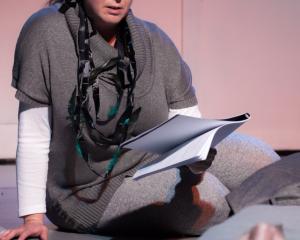In the appendix on page 17 of Creative New Zealand's "Review of Recurrently Funded Organisations" it is written in black and white: "Support is available for at least three theatre companies to create and present high-quality New Zealand theatre: one in each of Christchurch, Auckland and Wellington".
On page 16 under the same "Limits on support" column, in the orchestral music category, the report reads: "Support is available for at least two high-standard orchestras (in addition to the New Zealand Symphony Orchestra): one in the North Island and one in the South Island."
Small wonder that cultural leaders in Dunedin and Otago are alarmed.
This is a concerted art attack.
At a stroke of the pen, the future, indeed continued existence in recognisable form, of the Fortune Theatre and the Southern Sinfonia, beyond the end of 2011, are thrown into uncertainty.
The infrastructure required to support such ventures, the long-term planning they must do to set themselves on financially and artistically viable paths, the "talent" - either managerial or artistic - they are able to attract and retain, are undermined.
The main points of the CNZ proposal are to replace the present "recurrently funded" model - whereby arts organisations are allotted funding over a period of years - with a two-tier "investment" system: an "Arts Leadership Investment Programme", and an "Arts Development Investment Programme".
It is the probable, though not certain, exclusion of the Fortune and the sinfonia from the first of these categories - which allows for investment over a range of two to five years, and which will inevitably house an elite group of arts and culture "providers" - that has caused consternation.
The fear is that the Southern Sinfonia could be downgraded, for instance, to status of "community orchestra" with an associated loss of CNZ support from $315,000 to $150,000-$100,000; and that the Fortune will be relegated to the Arts Development programme, with intermittent and presumably lower levels of funding than the present $480,000 with which, among other things, to "develop the infrastructure required to create, present, distribute, or participate in high-quality New Zealand arts or arts experiences".
The irony in this will not be lost on boards and management of the theatre, past and present, who have set considerable store by doing just this.
The most likely outcome of such a demotion will be to threaten not only that infrastructure, but that of theatre in general - and in the parallel case, orchestral music - across Otago.
The benefits of having a fully professional theatre and semi-professional orchestra in a city such as Dunedin are innumerable - in terms of education, tourism, employment and the hard-to-define but nonetheless critical entity, cultural capital.
Equally, the ramifications of their loss are severe.
It is quite right that from time to time reviews are conducted to ascertain whether state funds are being appropriately apportioned and spent.
And notwithstanding the reality that arts sectors in any centre can be hot-beds of inflated egos and naked self-interest - with opinions to match - there will always be divisions of opinion as to the performance of the privileged agencies.
The Fortune is not beyond reproach.
Over the past several years it has occasionally appeared aloof from the local theatre interests; and either conservative or eccentric in its programming choices - perhaps swayed by a CNZ regime which has consistently made little allowance for the inherent box office risks of artistically adventurous or fresh New Zealand material.
A further irony is that the signalled uncertainty for the Fortune arrives just as the theatre appears to be making progress on both financial and artistic ground.
There may be benefits in the "seeding" of a wider range of theatre arts initiatives in the South through the new two-tier system, and in particular the Arts Development Investment Programme - but not if that proves to be at the cost of a professional local theatre.
Once again, Otago finds itself on the periphery and at the whim of capital city bureaucrats - with the threat that orchestral music and quality theatre end at Christchurch.
The best response during the next 18 months is for boards and management of the Southern Sinfonia and the Fortune Theatre to run tight ships, for direction to be creative in maximising audiences but also in gaining artistic kudos and enhancing reputation and, most of all, for local audiences to show, by attending performances, that these are institutions the city cannot and will not do without.





